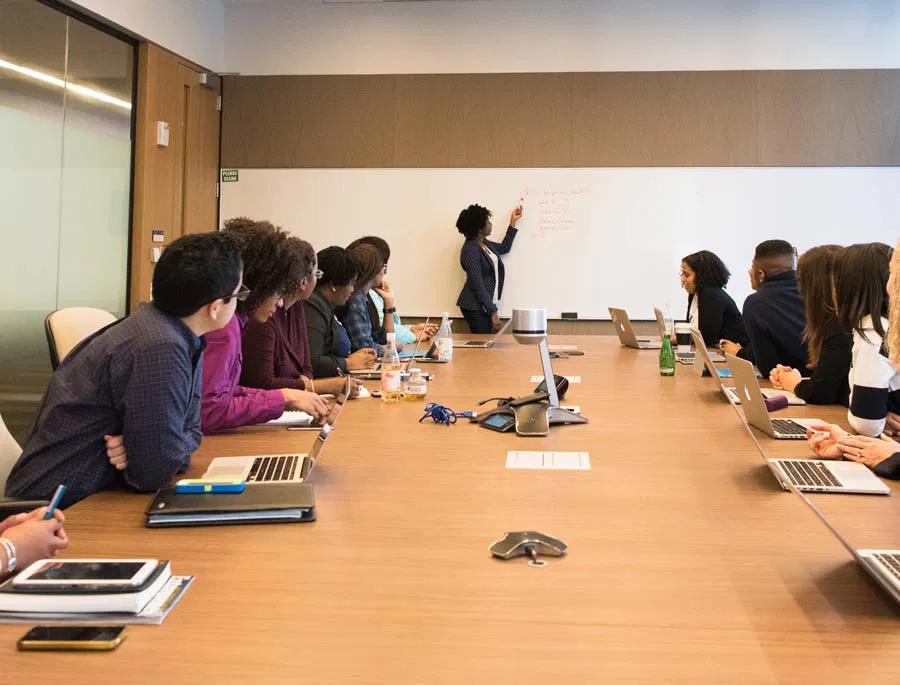The other day I was sent an email with five attachments and it was suggested that these were all read prior to attending a forthcoming meeting.
So I arrived at the meeting, on time, and sat and waited for 15 minutes which made me annoyed. The meeting eventually started but no agenda had been distributed. The attachments I had been sent were only touched upon so were not really necessary. And so I sat there thinking ‘what was the purpose of this meeting?’
Sometimes I wonder if people who arrange meetings fully appreciate the responsibility entailed? I am certainly not saying that some meetings are not invaluable and if organised and delivered well, are essential to develop projects, initiatives, clarify thinking, to brainstorm and to encourage networking. However, when using other people’s time, it is necessary to ensure that there is a valid reason.
Often, I arrive at a meeting that starts late, and I begin to lose focus and interest. And when they do eventually commence, the AV equipment has not been tested beforehand, the micrphone doesn’t work and it becomes more of a ‘fire-fighting activity with loads of excuses rather than a business meeting,
As this is one of my personal challenges, the following is an outline of my ‘Meetings Protocol’ that I hand out to delegates attending any of my presentations:
- If you are organising a meeting, then set the agenda and distribute it in advance. Only send out information to those who need it. Not everyone has to be involved in all the issues to be discussed and perhaps it needs just a small group who could feed-back necessary information to the larger group.
- Start on time: If you always start promptly, then this is your expectation and delegates or attendees will very soon find out that this is your way of working.
- At the beginning of the meeting, reiterate the agenda and timetable in order to keep everyone focused. It there is to be a break for lunch at 1pm, then make sure it is not 1.30pm! Timetables are important and are set so that everyone can arrange their day. If they are not strictly adhered to then there can be massive inconvenience for all concerned.
- Request that all cell phones are turned off. Full stop!
- Consider ‘stand up meetings’: These can be useful if you only want to speak for about 15 minutes.
- Arrange a meeting away from the office. Maybe outside [weather permitting] for a change of scenery which can encourage creativity as well.
- Learn how to handle audience members who will not adhere to timings but seem oblivious to the fact that they have exceeded their time slot.
- Meetings should increase productivity so question yourself as to why it is necessary to have most meetings longer than an hour. If however, if it is necessary, then do include a coffee break midway but be aware that any break in concentration needs to be managed with a summary before and afterwards.
- Use visuals/ graphics, where appropriate. People like to see as well as hear and visuals can help embed information in one’s memory. Holding something up that people can see, feel or touch can mean that your message will be firmly retained in the mind for long after the meeting is over.
- The role of the chairman is important and can determine the success of any meeting. He, or she, will ensure that speakers keep to time and will also give a professional summary at the start, during and at the conclusion of the meeting with an appropriate summing-up of the subject(s) discussed.
- Have someone record the meeting and send the minutes to all delegates within 24 hours. Give actions required and date of next meeting so that people can see why their role was important and where they fit into the bigger picture.
In conclusion. Meetings are invaluable for discussion between interested parties but they must be properly organised and implemented efficiently.
If you are going to have ‘back-to-back’ meetings, then make sure you write your notes from each one as you go along or, realistically, at the end of your day, you may have forgotten either an important message from the first one or the name of that potentially important new contact you met at lunch.
Reprinted with the kind permission of Gulf News
Need a Motivational Speaker or Awards Host for your Next Conference or Boardroom briefing?: Work Stress Expert, Carole Spiers will deliver a charismatic, high-impact keynote presentation, Show Stress Who’s Boss! based on her new book, at your next conference. Contact us info@carolespiersgroup.co.uk or call + 44 (0) 20 8954 1593
Carole’s book, Show Stress Who’s Boss! shows you how to deal with stress, manage your stress & anxiety and overcome symptoms of stress. You’ll find tools and stress management techniques to make your life stress-free. Inside this book you’ll find 4 proven steps to relieve your stress symptoms. Buy your personally signed copy and receive a FREE stress test card. http://www.showstresswhosboss.co.uk. Also available in Kindle version.





